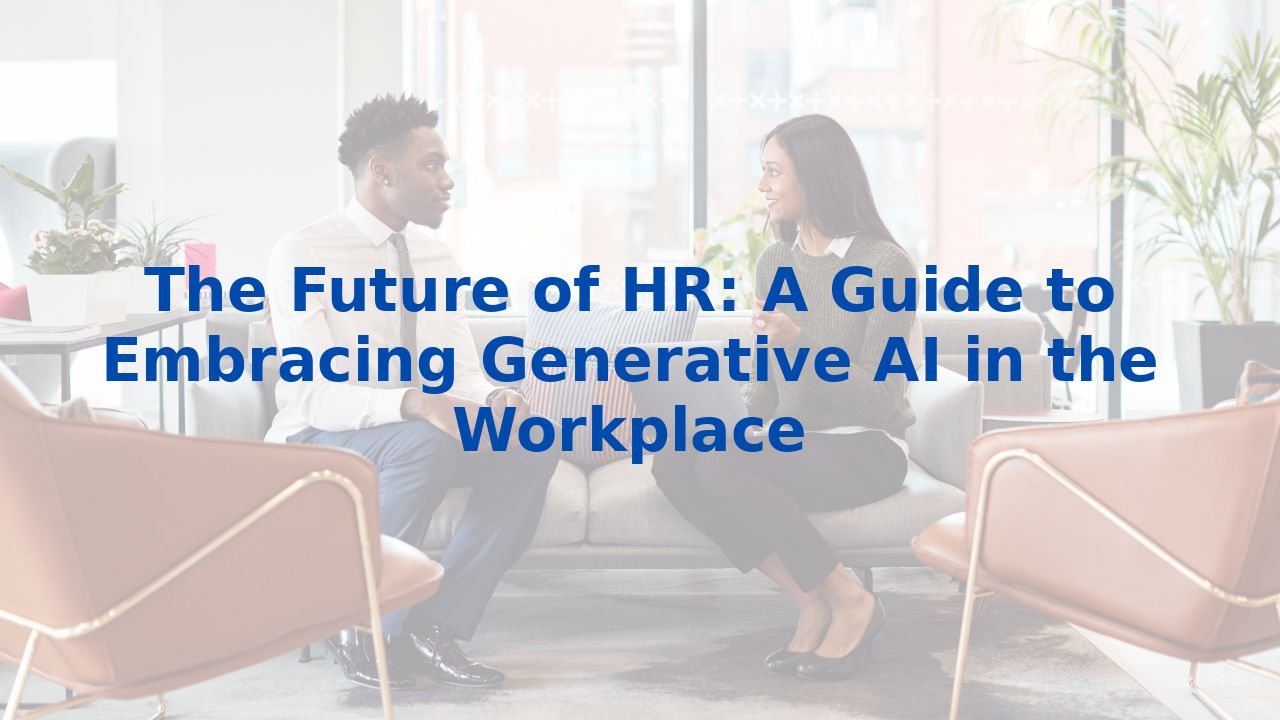The Future of HR: A Guide to Embracing Generative AI in the Workplace
The Future of HR: A Guide to Embracing Generative AI in the Workplace
As we embark on the journey of the 2024 business landscape, the evolution of HR practices stands as a testament to innovation and adaptation. The drive behind this transformation is none other than generative AI—a technology that is redefining our approach to human resources. No longer simply a buzzword, this technology is turning ideas about work, efficiency, and connection upside down.
The Rise of AI in HR
Generative AI is making waves by automating an array of processes that once bogged down HR departments. Tasks that traditionally required significant time and effort—such as writing job descriptions, developing interview guides, and crafting personalized communications—can now be performed with remarkable speed and efficiency. It isn't merely about substituting human effort; it's about elevating the strategic nature of HR roles.
According to a recent report by Gartner, we can expect 75% of HR inquiries to be handled by AI or chatbots within just a couple of years. Consider that for a moment. Such a transition not only streamlines tasks but also provides organizations with the opportunity to cut costs, allowing HR professionals to focus on aspects that demand empathy, strategy, and human insight.
Balancing Automation and Human Connection
However, amidst the excitement of automation and efficiency, there lurks a vital challenge: the irreplaceable value of human connection. Sundar Pichai, the CEO of a prominent tech company, remarked that AI represents one of the most profound advancements humanity is pursuing. This underscores the necessity for HR leaders to cultivate a harmonious relationship between technology and the human element.
“AI is one of the most profound things we’re working on as humanity. It’s more profound than fire or electricity.” - Sundar Pichai
The challenge for HR is to use technology not as a replacement, but as an enhancement—enabling professionals to engage in deeper conversations and build relationships that foster a thriving workplace culture.
Integrating AI into HR Processes
Organizations that embrace AI-driven HR platforms are setting the standard for efficiency and engagement. By integrating AI, they streamline operations while enhancing the employee experience. This is where the magic happens—creating workplaces that are not only productive but also engaging and supportive.
Adaptation to the New Reality
The question every organization must face is how to adapt to an AI-centric world while holding on to core values. It's about finding the right balance between leveraging technology and nurturing human connections. AI can take on repetitive tasks, allowing HR professionals time to invest in personal interactions and the development of a positive workplace culture.
Benefits of AI for HR
The advantages of incorporating AI into HR are manifold:
- Efficiency: Automation of routine tasks liberates HR professionals, enabling them to focus on strategic initiatives that drive organizational growth.
- Personalization: Tailored communications crafted by AI enhance employee engagement, making individuals feel valued and understood.
- Data Analysis: AI excels at processing vast datasets, yielding insights that inform better decision-making.
- Scalability: With the capability to manage high volumes of inquiries, AI is the ideal partner for rapidly growing firms.
Investing in AI Training for Employees
Recognizing the power of AI is one thing; harnessing it effectively is another. Hence, training employees to work alongside these innovative technologies becomes paramount. This includes cultivating skills such as formulating precise queries, constructing effective prompts, and critically evaluating AI outputs. When employees become AI literate, they stand better equipped to harness these tools, thereby amplifying their contributions.
Training your entire workforce in AI skills is not mere adaptability; it’s about leveraging knowledge to spur efficiency and innovation. Consider exploring comprehensive resources that facilitate skill acquisition, allowing all employees to thrive alongside AI developments.
Conclusion
The future of HR is not just a trend; it’s an evolving landscape, buoyed by the capabilities of generative AI. By embracing this transformation, businesses can streamline processes, enhance employee experiences, and preserve the vital human touch that ensures a healthy organizational culture. As we navigate this new frontier, the goal remains clear: to balance automation with compassion and innovation with connection—ultimately working towards an inclusive, productive, and thriving workplace.



